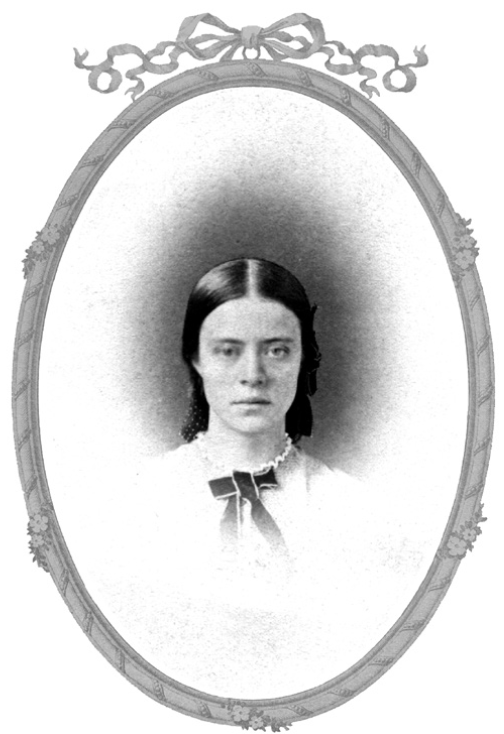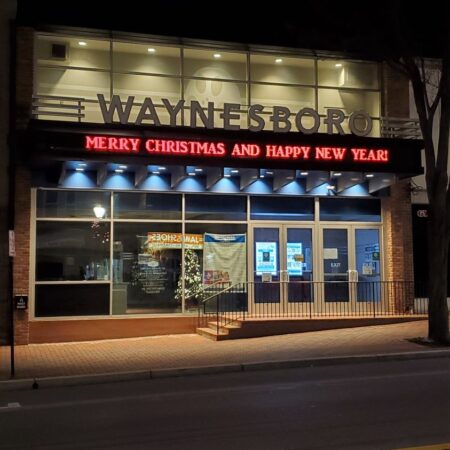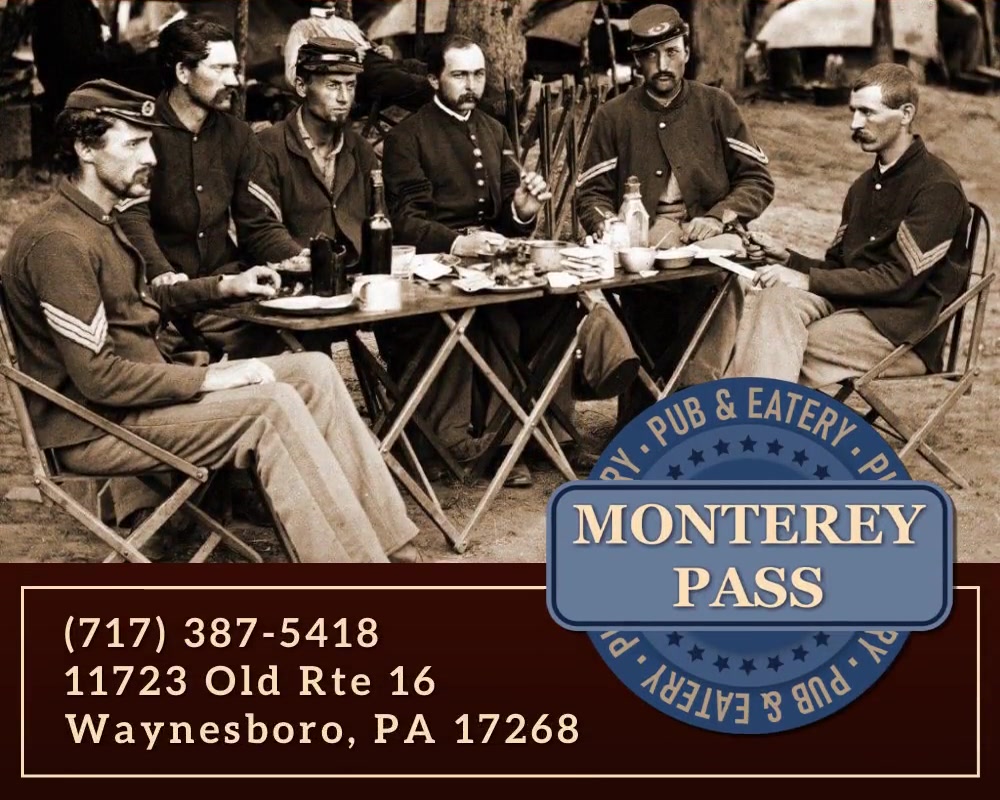Preface:
The burning of Chambersburg is widely known, but intimate details of the consequences are not. This week’s Local History captures some of those consequences from the eyes and gifted pen of a 21 year old woman. 1864 America was not the industrial and technological powerhouse we’ve come to know. Towns stood alone, providing their own police and fire support wholly from local citizens who volunteered because it was clear there was no other source for these services. Towns were connected to other towns by roads that were sufficient for horses and horse drawn wagons. Travel among towns was a major undertaking. And then there was a war with tens of thousands of armed men with orders. Towns were taken hostage by both sides all over America, sometimes merely for overnight shelter, sometimes to be plundered. Chambersburg was not unique. The reader should consider that thousands of citizens were rendered homeless, and this young lady, who knew so many, conveyed how they began the process of recovering their lives and rebuilding their town.
One other point. “The Rivulet” mentioned in the story’s preamble is a newsletter published from time to time by the Antietam Historical Association.
~ ~ ~ ~ ~
A Letter from a Young Lady.
Once again The Rivulet transcends the Antietam country to present an interesting document from the Nineteenth century. The following was written by Miss Mary Ann Catharine Laubach (pictured at left; Mrs. Christian Kessler; 1843–1929), a halfsister of B. M. Nead for whom the Association recently named an honorary fellowship. She addressed Miss Mary Eliza Wark, a native of Ireland who taught school at Chambersburg, Pa., and boarded with the Nead-Lau- bach family there for over fifty years. Her topic was the burning of Chambersburg by Confeder- ate forces under command of Brigadier-General John McCausland. Miss Laubach is pictured at left in a carte-de-visite taken in 1863 by John Keagy, a native of the Antietam country. Un- fortunately the following fragment is all that remains of her letter.
August 1st 1864 The ruins of Chambersburg.
Dear Miss Mary Eliza,
The Rebels have been and—we are ruined. Our house, and all it contained, is in ashes. We saved the most of our clothing, but all the furniture is burnt. I got a very few of your things. No one thought of your pictures until all was over. It is enough to break anybody’s heart to witness the destruction. From Ben Chambers’ house to Dr. Suesserott there are only four houses on Main St. Market St. from Miss Denny’s to J. M. McDowells is gone. [illegible] is gone. Second street, from Clines to the market house is all gone except from Seiberts to the Methodist church. Browns hotel is badly burnt but they can live in it. Queen Street from the Methodist Church to the creek is all gone. Some people haven’t the second thing to their backs. Wm. G. Reeds lost everything—everybody’s things are gone—Mrs. Stoner is safe. There were some of the noblest men among the Rebels. When they were ordered to fire the buildings, they refused and set
to, to aid people in removing their goods and putting out the fire. Mrs. Jordan’s and Capt. Austin’s have only what they could carry in pillow cases. Gehrs and Brewers lost all their silver; they set the court house on fire with kerosene from Gerbriks Store and bundles of straw. You cannot imagine anything so fearful as the courthouse when burning. I am so thankful I did not see our house burning. We carried our things to Uncle D. K’s and then when we thought their house would burn, out to Guthries, the last house on German St. I carried sheets full, just as full as they could be loaded away out to their house, on my back. Mrs. Stoner wanted some of us to come there but Uncle’s house accommodates us all and more.
Uncle John came up Yesterday (Sunday) and took Ella, Sallie and Dannie to Shippensburg. The people from below sent the heaviest trains with provisions and clothing. People that it would have been an insult to offer anything to, come for their rations, which are distributed from our warehouse. Mrs. Wallace’s splendid house is burnt. McClures are burnt out, too. Mrs. McClure and Jimmie Orr and the rest of their family walked within three miles of Shippensburg. They (the Rebels) didn’t burn any of the railroad buildings nor warehouses, except Dietz and Eysters. Seven Hotels. All except Browns are gone. . .two churches, Seceder and Bethel. I am writing with pen and ink from the provost’s office. * * *
Mrs. Stoner told me to tell you not to come up and not to think hard of her for sending such word. The schools won’t open, and your school house is to be taken for a hotel. Everybody is full of burnt-out people. Mrs. Stoner has Wallaces and Lanes. Mrs. Leggit said you shouldn’t send anything for Mrs. Boyle. The whole family have gone to Elmira. I am sorry that I could not save your things. I have your blue bonnet and your dark delaine. We did not know what to do, we had no warning. We had about 15 minutes to get our things out. The Rebels were not in our house. We locked it up when we left. Papa broke windows out to get himself out. Col. Austin shot a Rebel Major on Reasners steps on Saturday, thought to be Harry Gilmer, next to McCausland the head devil among them all.
There is the most awful excitement. . .but don’t come up. I wish you could see the ruins, but there is no place for strangers; people intend giving their parlors for stores. We are all well, except Ella; she had cholera morbus on Friday night. They kindled a fire in Clark’s house. We have our two new carpets and the piano stool, three or four quilts, three comforts and our clothes, with about a dozen books. I am astonished when I look at what we have; no one to help but Mag Seibert Linder. [Illegible] went to Newville yesterday. If you can read this, well and good; if not you can hear after a while. Andy Miller shot two Rebels and let them burn up. Good for them. They burnt the Academy; the Post Office is at Deal’s house. I am hurrying to get this off at one o’clock. People came in droves from the cars just now. I don’t know how they’ll live, for we all have to depend for subsistence on the surrounding towns. Don’t come up, at any rate until you hear again. Your trunk is at 808 Market St. Hinchman’s sent Friday night; I am so glad. The Piano is gone—one dare not stop to think or they would cry their eyes out. People with not a cent seem cheerful. It’s awful. Mother says for mercy’s sake not to come
back. Oh, Miss Mary E. what shall we do ? We are going to Harrisburg this week to buy and get things to go to housekeeping with.
Give our love to all. I guess you will see plenty of town people down there. They’ll tell you all. Just think of my nice row of Harpers. Oh, it’s all Couch’s fault ! There couldn’t have been 600 of them. The battery would have kept them out but they had orders to go. Lieut. Underhill burst into tears when he got to Shippensburg. Burt and the whole staff wanted to stay. Hamiltons haven’t a piece of clothing. If you write, direct to Uncle John’s, care of Shippensburg.
***
Mary Ann Catharine Laubach was born August 25, 1843, in Franklin county, Pa. She was the posthumous daughter and only child of the Reverend Benjamin Laubach and his wife, nee Eleanor Wunderlich. When Mary Ann was still a small child, her mother married (second) to Benjamin Franklin Nead, and they had a large family of children.
On July 17, 1872, Mary A. C. Laubach married the Reverend Christian Kessler, whom she bore but one child, Eleanor Walzer Kessler. Christian Kessler died in 1874.
During her long widowhood, Mrs.
Kessler taught school, part of that time at a Hagerstown female seminary. She resided at Chambersburg with the Nead family, and died there on October 5, 1929.
Miss Eleanor Walzer Kessler also became a school teacher and, later, a concert singer. She married Walter Coates, of East Hendred, Berkshire, England.
Miss Mary Eliza did indeed return to Chambersburg, and dwelt with the Neads until her death. A small tombstone in the graveyard of the Presbyterian Church of the Falling Spring is inscribed thus:
“Mary Eliza Wark entered into rest May 8, 1901. For over half a century a faithful teacher of the young.”

A Letter from a Young Lady, from “Antietam Heritage:, 2015 and contributed by Todd A. Dorsett of the Antietam Historical Association.
























